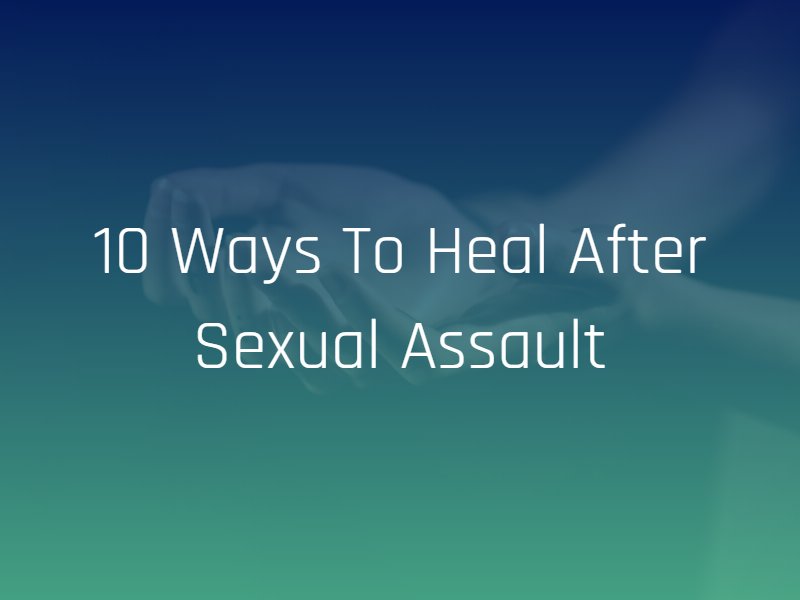Sexual assault can lead to significant emotional turmoil for months or even years following the act of violence. If you are a survivor, finding pathways to recovery can be a challenge — but with the right support and resources, healing is possible. There are many actions you can take to seek justice and repair these emotional wounds.
#1: Cognitive Behavioral Therapy
Sexual assault can result in serious emotional injuries, often leading to the development or exacerbation of mental illnesses like depression, anxiety, or post-traumatic stress disorder (PTSD). Some survivors develop unhealthy coping mechanisms to deal with the symptoms of these conditions, which can be very harmful.
Cognitive behavioral therapy (CBT) is a type of talk therapy where you will engage in guided conversations with a counselor. Through each session, the counselor will help you understand your emotional responses, decrease negative thinking patterns, and develop healthier coping mechanisms.
#2: Support Groups
Support groups are gatherings that allow you to meet other survivors and learn from each other’s experiences, journeys, and resources. The aftermath of sexual assault can feel isolating if you do not have people around you who understand your experiences, and support groups allow survivors to find this connection.
#3: Eye Movement Desensitization and Reprocessing Therapy
It is not uncommon for survivors to develop PTSD after an assault, a condition that leads to recurrent flashbacks, nightmares, and intrusive thoughts of a traumatic event. One treatment option for PTSD is eye movement desensitization and reprocessing therapy, which involves the use of guided eye movements to retrain how the brain processes the memory of the assault.
#4: Regular Exercise
We all need at least 30 minutes of exercise per day and 150 minutes of exercise per week to stay healthy. Exercise can provide a number of mental health benefits for survivors, including the production of endorphins, the establishment of a regular routine, and a healthier outlet to reduce stress associated with the aftermath of the assault.
#5: Meditation
Meditation is the practice of mindfulness, and involves a series of guided exercises to help you achieve a clearer mental state and a greater sense of awareness. In tandem with regular exercise, meditation may provide significant benefits to survivors, including a greater connection with the self, increased feelings of self-worth, and reduced stress.
#6: Sex Therapy
Engaging in consensual sexual activities after experiencing assault can be difficult. Sex therapy allows you to re-engage with intimacy in a healthy way and without additional trauma. This treatment is appropriate for survivors who have completed therapies to develop healthier coping skills.
#7: Prolonged Exposure Therapy
Prolonged exposure therapy is another PTSD treatment program, and involves the repeated discussion of a traumatic event in order to reduce its impact. Through this therapy, you can learn how to approach the memory of the assault without intense feelings of fear, which is common in PTSD.
#8: Play Therapy
Children who experience sexual assault need special treatment to process their experiences. Play therapy allows child survivors to articulate difficult experiences, better express their emotions, and learn how to process memories of the assault.
#9: Creative Activities
Creating art, writing in a journal, making music, and many other creative activities can provide much-needed emotional outlets for sexual assault survivors. Art therapy is a common component of inpatient mental health treatment programs, and studies show that creative expression can aid in the process of healing from trauma.
#10: Depth Therapy
Another form of therapy for survivors is depth therapy, which involves the processing of unconscious emotions. Through this treatment, you can better understand how these unconscious feelings impact your daily life and take action to reduce negative behaviors.
Seeking Help After Sexual Violence
If you are a survivor of sexual assault, you deserve to heal, and you deserve justice. You have many pathways to justice available to you, from community accountability to civil and criminal legal proceedings.
Speak to a sexual assault lawyer as soon as possible to discuss your legal options and plan your next steps to hold the perpetrator accountable.

